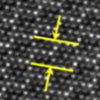Researchers demonstrated controllable atomic-scale patterning and resistive switching in 2D cuprous telluride crystals. Their memristor model and applications in image processing signify progress towards advanced in-memory computing.
Ecology and artificial intelligence: stronger together
Sep 12, 2023 (Nanowerk News) Many of today’s artificial intelligence systems loosely mimic the human brain. In a new paper, researchers suggest that another branch of biology — ecology — could inspire a whole new generation of AI to be more powerful, resilient, and socially responsible. Published in Proceedings of...
Turning used grounds into caffeinated creations
Sep 12, 2023 (Nanowerk News) Coffee can do a lot of things: Wake you up, warm you up and lessen that existential dread. According to a new study ("Designing a Sustainable Material for 3D Printing with Spent Coffee Grounds"), it could also help reduce the waste from 3D printing. That’s...
Using smart bioelectronic devices to capture and release tumor cells
Sep 12, 2023 (Nanowerk News) Metastasis is the leading cause of death in cancer, occurring when a cell leaves the primary tumour, passes into the bloodstream and lymphatic system and reaches distant organs. Non-invasive collection of these circulating tumour cells is essential for the study of cell biology, the diagnosis...
A linear path to efficient quantum technologies
Sep 12, 2023 (Nanowerk News) Researchers at the University of Stuttgart have demonstrated that a key ingredient for many quantum computation and communication schemes can be performed with an efficiency that exceeds the commonly assumed upper theoretical limit — thereby opening up new perspectives for a wide range of photonic...
Strategic heat dissipation could keep next-gen electronics cool
Sep 12, 2023 (Nanowerk Spotlight) As electronics become smaller, faster and more powerful, managing the heat they generate is becoming increasingly challenging. Densely packed 3D electronics, made by stacking components vertically, are especially prone to overheating as the heat has limited routes to escape. But scientists in Singapore have developed...






